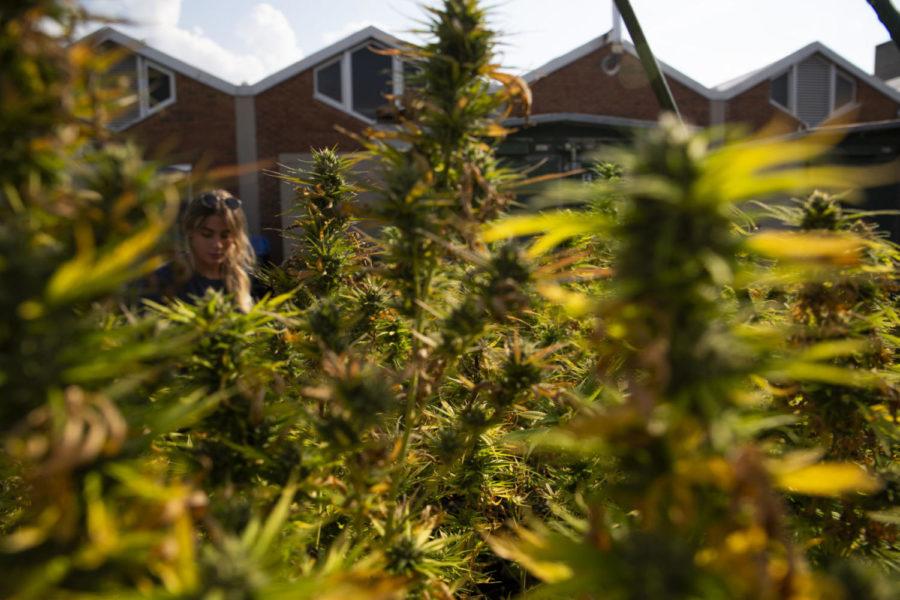Research partnership could put UK on the forefront of hemp boom
Lindsay Jarrell, a research analyst in plant soil sciences, waters hemp plants outside greenhouse 12, part of the Agriculture Science Center North Greenhouse Complex, on Wednesday, September 11, 2019, in Lexington, Kentucky.
December 1, 2019
Nearly a year after passage of the 2018 Farm Bill, the University of Kentucky is cashing in on hemp.
A new partnership between UK and ValidCare, a leading hemp research agency, will attempt to fill in several blanks regarding the applications and possible effects of the crop.
According to a press release, ValidCare will provide UK with prior research in the field as well as laboratory space and access to the Institutional Review Board.
According to ValidCare CEO Patrick McCarthy, there’s a lot to catch up on in the wake of the crop’s recent removal from the controlled substance list.
“Until the farm bill was passed, it was illegal to do research on hemp because it was considered cannabis,” McCarthy said. “There’s arguably 30 to 50 years of research on this coming forward. It’s really, really exciting.”
Through the partnership with ValidCare, UK researchers will investigate the effects of hemp on humans and animals, according to Lisa Cassis, UK’s Vice President for Resarch. McCarthy said the crop has potential therapeutic and curative properties and may even reduce opioid addiction.
Hemp – a strain of the cannabis plant, from which marijuana is also derived – was legalized for industrial production last year in the federal farm bill. However, though hemp commerce and consumption have been legalized, research into the crop’s effects remains scarce. Organizations nationwide have recently turned to the daunting task of addressing that massive research deficiency.
Such research could illuminate hemp’s full applications as well as help to create vital regulations in the blooming hemp industry.
“We haven’t seen CBD [a hemp product] hurt anybody yet, which is great. But how people make their products and what they put in with the CBD can be a big, big concern,” McCarthy said. “We just saw what happened with vaping and the use of Vitamin E and heating that up… Something like that could happen through the supply chain. We don’t know what is actually going into a lot of these different compounds. We really do need some oversight.”
It’s only fitting that oversight should come out of the Bluegrass state, according to Cassis.
“Kentucky is arguably the epicenter of the resurgence of the hemp industry,” Cassis said in a press release. “The university is engaged in hemp research and has been instrumental in FDA-approved studies involving cannabis-based drugs.”
McCarthy echoed Cassis’ sentiment. He added that political efforts from Senator Mitch McConnell and Agricultural Commissioner Ryan Quarles have encouraged the growing hemp industry in Kentucky.
Hemp and marijuana are more or less strains of the same plant, but hemp is necessarily non-intoxicating; by legal definition, hemp contains less than 0.3 percent of THC, the chemical that provides marijuana users with a high.
However, stigmas surrounding the plant remain.
According to McCarthy, “research… and education is critical to differentiate between the two.”
If all goes to plan, research from the UK-ValidCare partnership should begin to reach the public by next year, according to McCarthy.




























































































































































